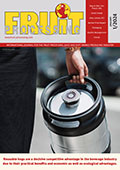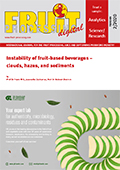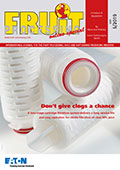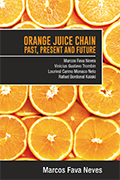Transparency breakthrough: Koa discloses all payments to cocoa farmers with blockchain
Koa is disrupting transparency in the cocoa industry. The Swiss-Ghanaian start-up is launching a system, using blockchain technology, that proves transactions and higher income for cocoa farmers.

Koa is disrupting transparency in the cocoa industry. The Swiss-Ghanaian start-up is launching a system, using blockchain technology, that proves transactions and higher income for cocoa farmers. In an international collaboration with the companies seedtrace (Germany) and MTN Group (South Africa), Koa has implemented a new, tamper-proof and scalable transparency system that records payments made to cocoa smallholders. Mobile money payments are verified in real-time and are irreversibly stored on a blockchain. Transactions are made publicly available, differentiating themselves from existing certification labels, providing consumers with direct proof that farmers receive the full payment.
Over the last decades, supply chain scandals and cocoa farmer poverty have continued to rock the cocoa industry, leading to increased consumer demand and political efforts to improve transparency and accountability within the cocoa industry. Yet, consumers struggle to put their trust in brands and their initiatives. While products carry certification labels, the inevitable question remains: How can I be sure that farmers receive the money that they’re entitled to?
Koa, the Swiss-Ghanaian start-up making use of cocoa food waste, has set sail to disrupt transparency standards and to enable consumers to obtain assurance. “We want to get rid of long, non-transparent supply chains,” emphasises Anian Schreiber, Managing Director and Co-Founder at Koa. “Instead of claiming good practices, we put our cards on the table to let the consumers witness each transaction to farmers.” The start-up is known for upcycling the white pulp that surrounds the cocoa beans, thereby significantly increasing the income of Ghanaian smallholders, while offering a solution to reduce farmer poverty. Koa is working with over 2,200 cocoa farmers and will add an additional 10,000 farmers to its value chain in the next two years.
Removing the room for errors and opaque marketing messages
To develop the pioneering transparency system, Koa collaborated with Berlin-based seedtrace, a SaaS start-up on a mission to make supply chain transparency the norm. Existing certification labels often validate transactions through non-transparent, error-prone control procedures, with farmers regularly only receiving a portion of the funds claimed to be earmarked for them. To combat this, seedtrace created a system that removes the room for error and enables customers to monitor the extra income paid to farmers. “We verify each transaction and store it on an open, low-emission blockchain. Together with Koa, we thereby set new standards assuring that the information is verified, cannot be manipulated and is accessible in real-time for all stakeholders,” explains Ana Selina Haberbosch, CEO at seedtrace.
Blockchain enables full transparency
The new system is unique as it connects blockchain with mobile money transactions. “Instead of having a person enter information on the blockchain, it links the data from mobile money transactions. This combination allows us to verify additional farmer income, deliver full proof and increase trust among stakeholders,” says Francis Appiagyei-Poku, Finance and Administration Director at Koa. To make this possible, Koa and seedtrace have partnered with MTN Group, Africa’s largest telecommunications operator, who’s mobile money transaction data serves as secure inputs for the blockchain provided by US company Topl. 360-degree transparency is achieved by implementing clear, transparent, and compliant data management processes that protects individual data and keep farmers informed of data use.
Oberweis first to integrate the system
Leading the way towards full transparency is Jeff Oberweis, the renowned pastry chef from Luxembourg, who sends consumers on a journey from cocoa farmers to the final product. A QR code on the packaging of the product containing Koa ingredients leads consumers to the seedtrace platform where they can see the additional farmer income. “In 2022, we want to have proof that people are paid fairly and that we work on an equal footing throughout the value chain. Koa’s integration of the blockchain guarantees total transparency and allows us to set an example to the industry,” emphasises Jeff Oberweis.
What is blockchain?
Blockchain technology is at its very core a database, distributed across many servers in a network. The biggest benefits of using blockchain for supply chain management are transparency and traceability. Essentially, blockchain allows organizations to store information about transactions and their impact in an immutable and transparent way, ensuring that information about upstream events arrives downstream unaltered. Since the companies Koa and seedtrace are using a public blockchain and every actor has their own copy of the chain, it cannot be tampered with, which increases the transparency and trust- worthiness of the provided information.
Since Koa pays farmers with mobile money (real money) through the mobile payment provider MTN, the tracing partner seedtrace can verify every individual transaction. Once triggered by Koa, seedtrace verifies through MTN whether the transaction arrived with the right person and the right amount before storing the data immutably on the blockchain.









